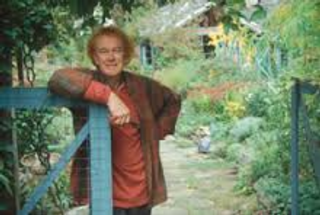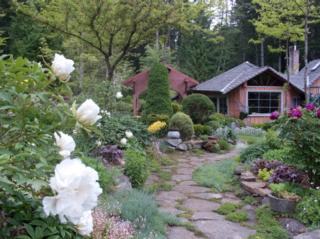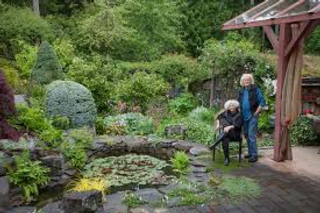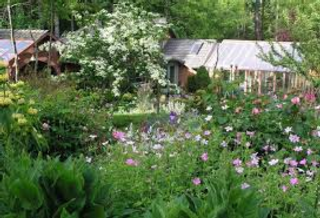Flowers for the Living: A Tribute to Des Kennedy

"I come to bury Caesar, not to praise him", says Shakespeare's Marc Antony, who goes on to mention that the good that people do "is oft interred with their bones". Precisely this vast graveyard is what gives me the creeps. I don't want the good done by my loved ones to get deep sixed. So I come to this page now to invert the famous line of Antony. I come to praise my uncle Des, not to bury him, and with more than sufficient reason, seeing that he isn't anywhere yet near dead.
Indeed, if many of us have signed living wills, what stops me from writing a living eulogy? Better now than later, when ashes to ashes brings Des to dust. Thus to Shakespeare, I add a little Elton John to round out this opening paragraph: "I hope you don't mind that I put down in words how wonderful life is while you're in the world".
Ambition, perhaps is the term that has entered to your mind, dear reader. Just to put to rest any suspicions that my desire to praise the living Des springs from my pockets, I assure you that I have, unwittingly, divested myself of all possible inheritance. What follows is not to ingratiate myself with a rich, doughty uncle, since Des and my aunt Sandy more or less tightrope walk Canada's official poverty line. Their liquid assets wouldn't slake the thirst of a cocker spaniel on a warm summer's day.
What they do have of worth is a golden nugget of B.C. real estate, which, admittedly, I would, so to speak, die to inhabit. That door, alas, is firmly closed. As I learned not long ago, I once figured high on the list of potential inheritors along with my cousin by marriage, Aswea. Our joint candidature, however, relied on the condition of our coupling up. She loves their place as much as I do and so, as a pair, we presumably would keep their edenic legacy alive.
But I entered the Society of Jesus and Aswea married a university friend of mine and moved to Newfoundland. Consequently, with this eulogy I have nothing more to gain than to multiply my gratitude by sowing it in you, dear reader.
 You see, Des has been my lifetime hero, even before I really knew who he is. Having head west as a young man before I was born, Des didn't physically displace much water in the tub of my childhood. At the age of five I met him for the first time, when my father accepted the invitation of his hippy, homesteading sibling to check out life down on the island farm.
You see, Des has been my lifetime hero, even before I really knew who he is. Having head west as a young man before I was born, Des didn't physically displace much water in the tub of my childhood. At the age of five I met him for the first time, when my father accepted the invitation of his hippy, homesteading sibling to check out life down on the island farm.
My memories of the adventure are few and spotty: the neighbour's house with a giant tree growing up through the livingroom ceiling; a honey pot swarming with big, black ants; total enthrallment with the tiny crabs scuttling about in the bottom of a rocky, tidal pool; getting chased by a Park's Canada helicopter off a mountain trail that had been closed due to forest fire hazards. My father, on the other hand, still carries very vivid memories of the outhouse and other "country charms" of the sticks. It took him thirty years to pluck up the guts to pay a second visit.
This early, misty introduction to my back-to-the-landers uncle and aunt planted a whole sack of seeds in my young heart. Over the next two decades I saw Des only a handful of times when he came to Ontario for various garden functions and book launches. All the same, his person and life project began taking root with ever greater depth in my imagination.
I grew inordinately proud of this author uncle living the ecological dream in the Gulf Islands of British Colombia. Even without much communication between us, intriguing facts would filter down to me: of his theatrical undertakings; of his friendship with the likes of David Suzuki; of his arrest in the long protests against the clearcutting of Clayquot Sound. A complete hagiography of the man began writing itself in my mind.
By the time I finally found myself again on the ferry to Denman Island at the age of 25, I had enough idealizations and icons of the hippy saint in my head to fill a Russian Orthodox cathedral, and more than enough to crush me flat upon impact with a distinct reality. I was spared the blow. True, my imagination did feel deceived, but only because it had to face its own poverty. My image was beggared by the real. 
To share with Des and Sandy their days of work, their allegiance to beauty, and their polished capacity to delight in the world around and within them, only served to radicalize my admiration. They are, in a word, artists of life. Pope Francis describes them to a t in Laudato si: "those who enjoy more and live better each moment are those who have given up dipping here and there, always on the look-out for what they do not have. They experience what it means to appreciate each person and each thing, learning familiarity with the simplest things and how to enjoy them" (#223).
Tending their expansive, expressive gardens, cooking and savouring their homegrown meals, caring for their corner of Douglas fir forest, Des and Sandy contribute an incalculable amount to the Gross Domestic Beauty (GDB) of the world. At six pm they put down their spades and with a glass of house wine (i.e. homemade) allow the pleasures of work, nature, and good company sink gracefully into evening.
Des and Sandy have invested such a quantity of love into the home they've built and the gardens they keep, that their collective person does not stop at the frontier of their skin, but rather extends to the dozen or so acres that has nourished their happiness over the course of four decades. In a way they are monkish, having taken a personal vow of stability that has formed a bond of intense intimacy between them and a particular patch of earth. For me they prove what fidelity, patience and creativity can accomplish: a return to Eden, or better yet, a new relation with creation based on mutual understanding and a shared wellbeing.
In this sense, Eden is not the destination sought for, since it was the province of no more than a pair. Were my aunt and uncle hermetically sealed off in their paradise, they would lose much of their heroic lustre in my eyes. Their commitment to their place on earth, however, does not isolate them from the world. 
Through writing, public speaking and acting Des has always been involved in social justice and ecological protection. Sandy does community organizing. As alluded to above, both were arrested and charged for protecting old-growth forests. Ironically, the judge sentenced them to several months of house arrest. Thus they were forcefully confined to beauty, as if God had punished Adam and Eve by slinging up for them a hammock in the Tree of Knowledge.
Let me end with a confession, dear reader. I confess to fearing what might become of Des and Sandy and their precious presence on Denman Island as the rigours of rural life outstrip their aging bodies. So tied are they spiritually to their place that it would imply amputation to remove them. So it was with the Israelites while exiled in Babylon. Yet this exile did not last forever. And even far from Jerusalem their faith did not vanish.
This keeps me hopefully, the thought that the Creator God builds throughout all the earth. Quite likely it's more the purity of our dedication to one place rather than its strict geography that determines the affection and efficacy we experience there. There's a good chance that the devotion of Des and Sandy to the particular has taught them secretly to be universalists, capable of cultivating beauty and truth wherever they happen to find themselves. Without a doubt, they have enough good dirt under their fingernails to keep in touch with the earth always.
+++++++++++++++++++++++++++++
Unless otherwise indicated, Photos: Boomer Jerritt, and www.recreatingeden.com




Theresa Le Blanc
Posted at 20:53h, 08 DecemberThanks for this. I am reading one of Des’s books and wanted to know more about him. His writing is both funny and evocative.
Jo Beattie
Posted at 17:23h, 05 SeptemberI just happened to buy The Way of a Gardener today from my local bookstore on Pender Island. I had never heard of Des before sadly. I also, as a Catholic with a strong social justice bent and Irish ancestry and as a newbie gardener, was drawn to buying the book. I looked up info on Des and came across your blog. Thank you for your reflections! Now to page one..